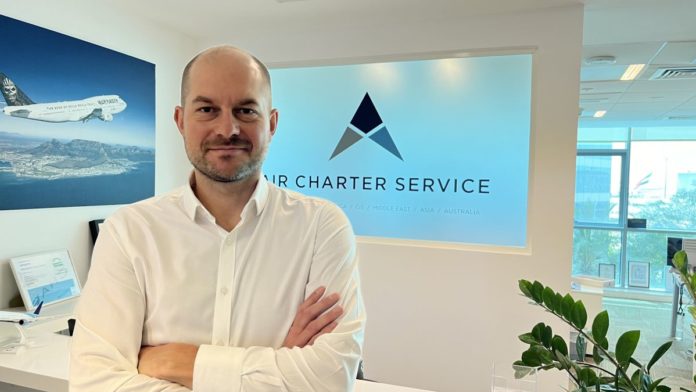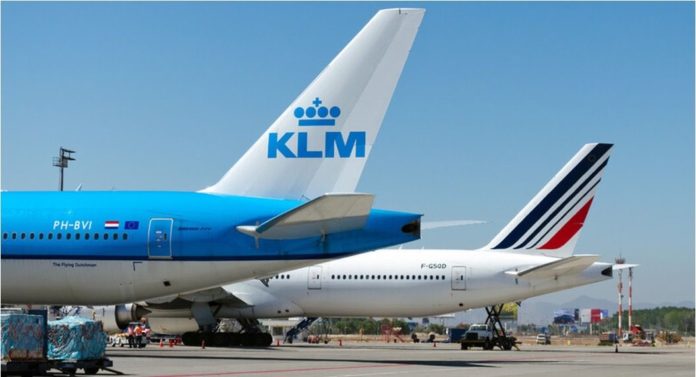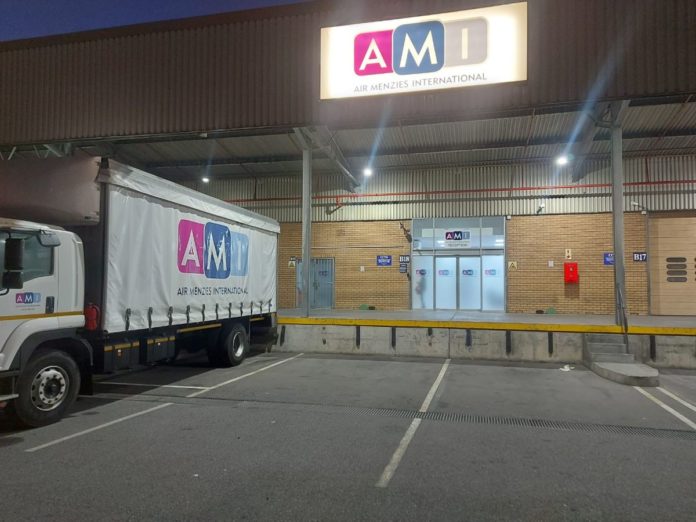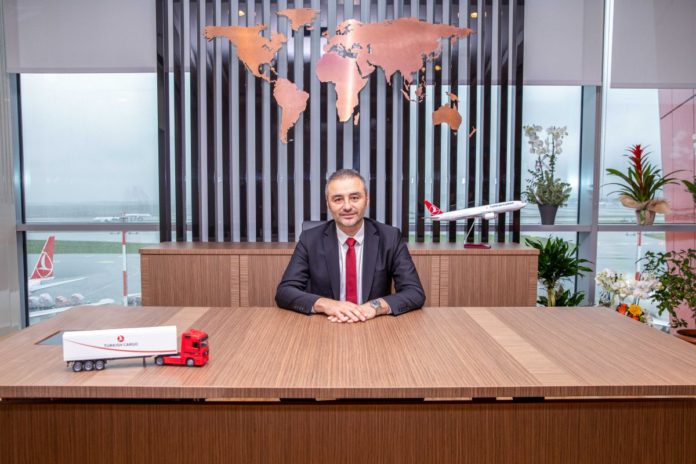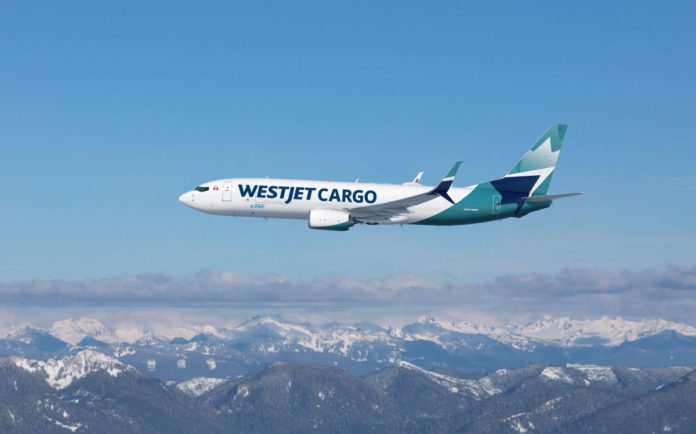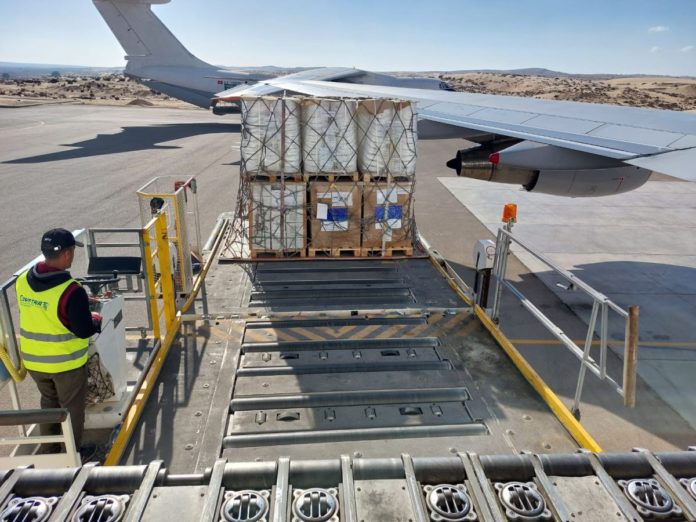Broker Air Charter Service has appointed Andrew Summers as regional director for its mainland European offices. An 18-year ACS veteran, he will be responsible for helping ACS heads of our operations across Europe in cargo, private jets and group travel grow their businesses and expand into new markets. As a fluent Russian speaker Andrew will also continue to oversee growth in central Asia through the Kazakhstan office.
WFS wins Air France KLM contract in Phoenix
Air France-KLM has extended its partnership with WFS in North America with a new three-year passenger and ramp handing contract in Phoenix. It is the airline’s 17th destination in the US. Air France now operates three flights a week to and from Paris Charles de Gaulle.
New-look Skypallet ready for take-off
Airfreight tech company Wiremind says that Beta-testing of its Skypallet 2.0 space optimization and palletization tool is well underway and the significantly improved version is on tracking for launch this summer.
Skypallet 2.0 will bring a more intuitive interface, greater processing speeds, and workflow automation thanks to its integration with Wiremind’s cargo management system, Cargostack.
Wiremind says that Skypallet, launched in 2017, was the first commercial software to offer air cargo-specific 3D visualisation and optimization of pallet and container loads, addressing some of the industry’s most pressing pain points and giving commercial teams the operational know-how to quote shipments more efficiently.
For the new version, it has rewritten Skypallet’s code base in a new programming language which makes for faster calculation and more advanced palletization algorithms. Integration into Cargostack also allows deeper integration and significant workflow automation.
It also includes new data points that can be used by the palletization engine such as freight status or its build characteristics on an inbound leg to produce more granular results.
Wiremind chief executive Nathanaël de Tarade said: “Various improvements to Skypallet over the years means it is now used at multiple touchpoints and processes in the air cargo lifecycle by our customers. While Skypallet has already been integrated to customer systems through its API, it has remained a ‘stateless’ application relying on external systems to provide shipment and capacity inputs per calculation. By incorporating it into Cargostack as part of our version 2.0, we now have the architecture to retrieve and hold all the relevant inputs consumed by the palletization algorithm, through deep integration with a customer’s core reservation system.”
He added that this means that Skypallet can run autonomously in the background using the booking, flight and aircraft data to recommend outputs back to the airline system such as remaining available volume, suggest offloads and significantly automate the flight release process. Wiremind is also exploring new use cases with early adopter customers including a new module to manage end-to-end special load processes, in-warehouse use for build planning and execution, and aircraft weight and balance capabilities.
With the 2.0 improvements, Wirelmind says that Skypallet can be used throughout the entire cargo lifecycle from quotation to booking acceptance, capacity control, flight release, through to operations. It will be progressively rolled out to new and existing customers over the coming 12-18 months with a comprehensive change management plan.
AMI on the move in Cape Town
Wholesale freight forwarder Air Menzies International (AMI) has moved to a larger, modern facility in Cape Town, South Africa. Locateda short distance from the international airport, it offers faster transit times, reduced handling of shipments and is closer to airline handling agents.
It also offers additional warehouse space and features advanced cooler and freezer facilities equipped with temperature control loggers for perishable goods
The premises are monitored 24/7 with comprehensive CCTV surveillance and controlled access.
AMI chief executive Carlos Font said: “This impressive new facility is an important leap for AMI South Africa, as we continue to strengthen our value proposition and our ability to serve our clients.”
Environmental accolade for Turkish Cargo
Turkish Cargo has gained LEED (Leadership in Energy and Environmental Design) platinum operations certification for its SmartIST cargo facility in Istanbul. The programme is designed to enhance the energy, water, material and interior quality and reduce environmental impact. The carrier’s chief cargo officer, Ali Turk, said: “We are committed to ensuring that the SMARTIST cargo facility not only enjoys its high capacity and cutting-edge technology, but also is a sustainable and people-oriented building.”
Emirates trains cargo managers of the future
Emirates SkyCargo has launched a bespoke training programme to equip the cargo leaders of tomorrow with commercial and leadership skills.
Two groups of 16 are being chosen from Emirates SkyCargo’s pool of cargo managers and include both Emirati nationals as well as others from the airline’s outstations. The 15 day programme includes six sessions, focussed on proactive preparation and strategic optimization of current and future operations, including artificial intelligence (AI). The candidates will graduate with a diploma endorsed by AviationNOW, a member of The International Air Cargo Association (TIACA.
Training is hosted at Emirates headquarters in Dubai, and will be a mix of theoretical and practical sessions. Following the first schedule, Emirates SkyCargo plans to extend the training programme to other aspects of the business, including operations.
WestJet adds US and Korea routes
Canadian carrier WestJet Cargo is launching services to Chicago (ORD), Moncton (YQM), and Incheon (ICN) in its summer schedule.
The Chicago route operates from Calgary three times a week but will increase to daily flights by June 17 and will continue to operate year-round. The 737 aircraft have cargo capacity of 2,700 kg per flight, focusing on perishables. WestJet already operates a weekly freighter into Chicago.
Flights to Moncton, Canada, will also operate year-round with a 737 aircraft, with daily flights to Calgary, 3- 4 weekly flights to Edmonton, and 3-5 weekly flights to Toronto. The primary cargo for this route is live animals.
The Calgary to Incheon route, launched on May 18, operates three days weekly with a 787 Dreamliner, offering a 60 tonnes capacity.
Air Partner flies aid to Gaza
Air Partner’s cargo division has operated three 747-400 freighter flights with aid for Gaza, each carrying 85-90 tonnes.
Two of the flights took off from Liege airport in Belgium and the third flight left from Nairobi airport Kenya, all bound for Larnaca International Airport (LCA) in Cyprus. With the ongoing conflict closing borders, the aid was flown to Cyprus and then transported by sea to the floating pier constructed off the coast of Gaza.
Operating from international airports allowed for any potential issues with permit and traffic rights to be organised prior to the mission but the primary challenge was efficiently loading the cargo due to the need to palletise it, resulting in the aircraft reaching its weight capacity before its volume limit.
DHL renews CEIV Pharma
DHL Global Forwarding, DHL Group’s air and ocean freight specialist, has been re-certified to the CEIV Pharma Standard by IATA. CEIV is a globally recognized industry standard established by the International Air Transport Association (IATA) to promote best practices and achieve globally accepted standardization in air cargo. DHL has certified its global stations to the standard since 2016.
WFS to run CBP Central at New York JFK
SATS subsidiary Worldwide Flight Services (WFS) has won a five-year contract to operate US Customs and Border Protection (CBp)’s new Centralized Examination Station at New York’s JFK Airport, due to open in early 2025.
It will combine all CBP inspections, a first in the air freight sector, and will also be the first on-airport examination facility at JFK, processing import, export, and USDA (Department of Agriculture) goods. The nearest CES to JFK is currently at Newark Airport, on the other side of the Hudson River.
JFK is North America’s busiest international airport with over 85 international airlines moving around 1.4 million tons of cargo a year through JFK’s 20 on-airport air warehouses.
The CES will be at WFS’ Building 151 at with over 100,000sq ft of warehousing, offices and facilities. WFS said that being close to the ramp would provide fast airside access from the airside and shipments for inspection would be transported to the CES from airline facilities. This would help improve CBP’s efficiency as officers would no longer have to move around the airport to inspect cargo.
WFS will modify the building to CBP requirements and develop customised software, making JFK the first paperless CES. WFS already offers dock management software for processing trucks and digital dashboards to monitor the progress of shipments.
New York JFK is one of WFS’ biggest international cargo stations, serving 40 airlines at eight handling facilities and the handler will increase its cargo capacity by 20% when it opens a new 346,000sq ft terminal in 2025.
CBP port director at JFK, Salvatore Ingrassia, described the new CES said: “The efficiencies realized from this facility will allow CBP to optimise resources and enhance our enforcement efforts to keep bad things, such as dangerous precursor chemicals, goods that infringe on intellectual property rights, and imports that place the American people at risk for their health and safety, out of the commerce of the US.”
He added that the CES would also allow legally imported goods to move through JFK faster and more efficiently.
Chief executive of the Americas at WFS, Mike Simpson, added: “This partnership marks another exciting chapter for WFS and underscores our unwavering commitment to safety, security, and innovation in air cargo handling. We look forward to delivering exceptional service and contributing to the continued success of JFK and the air cargo industry.”







